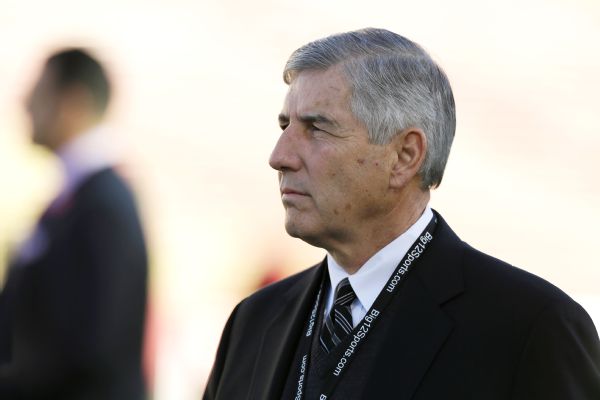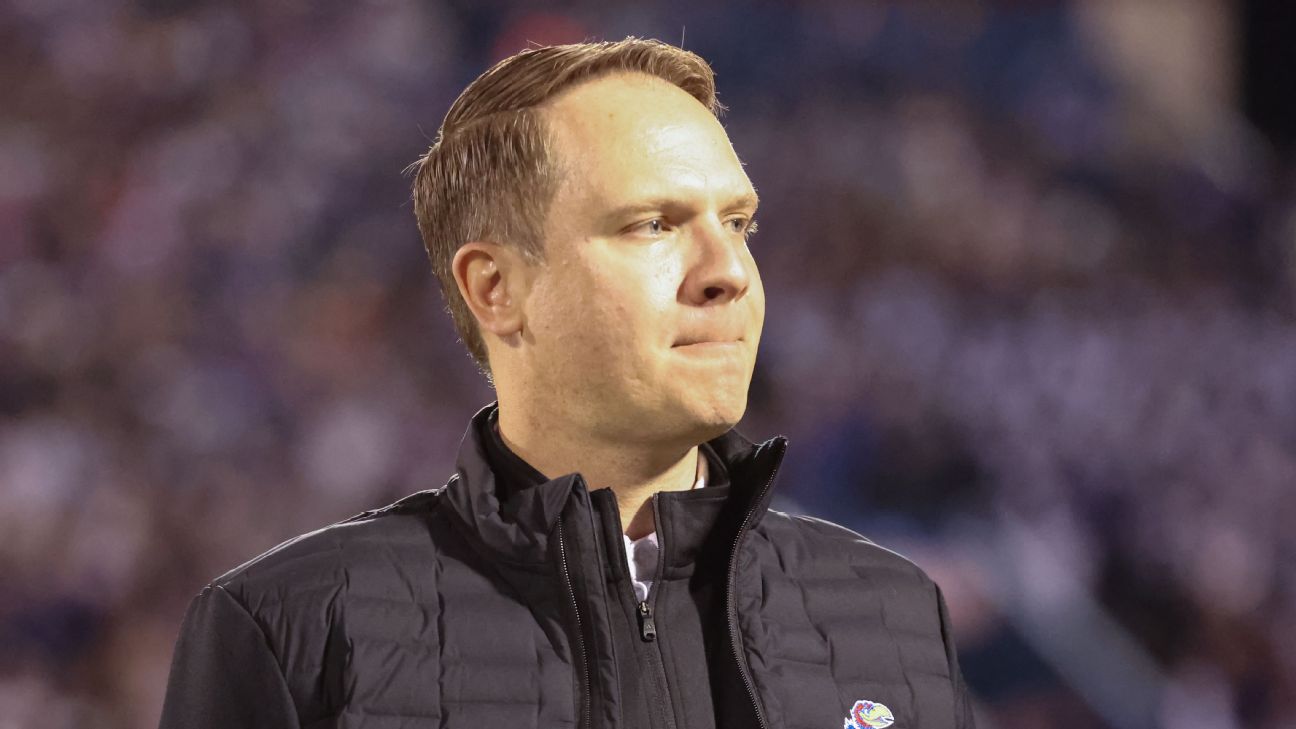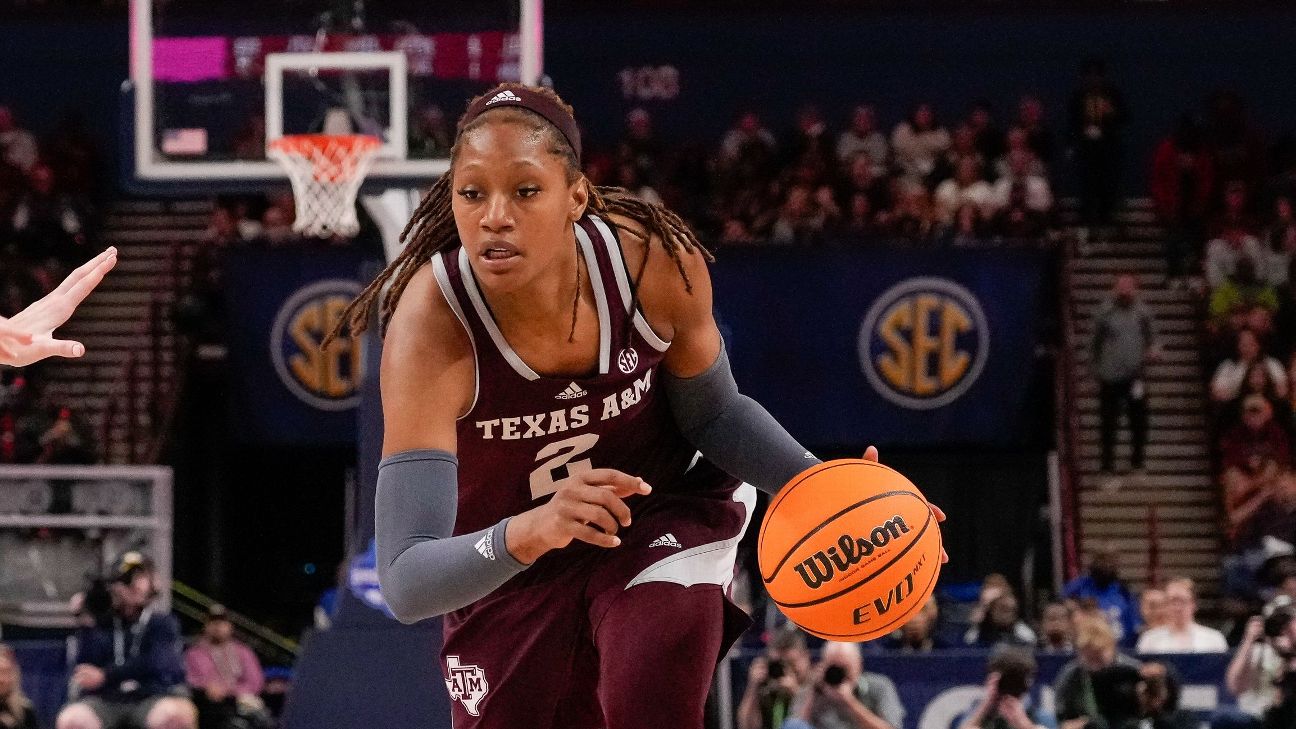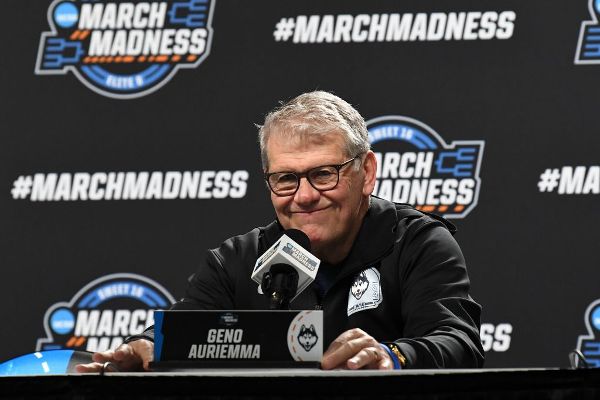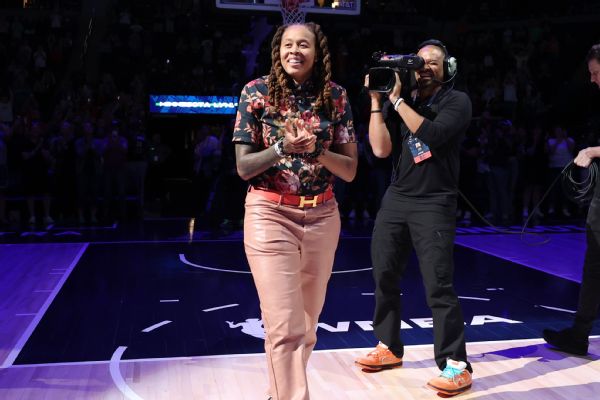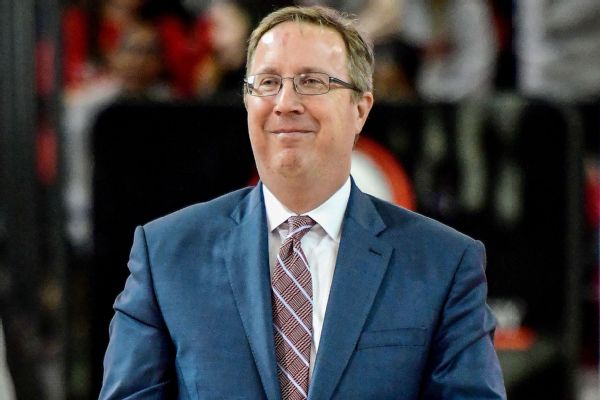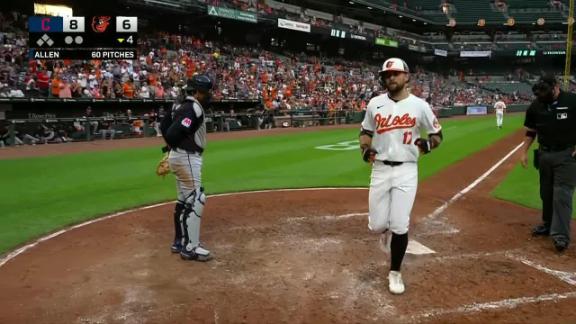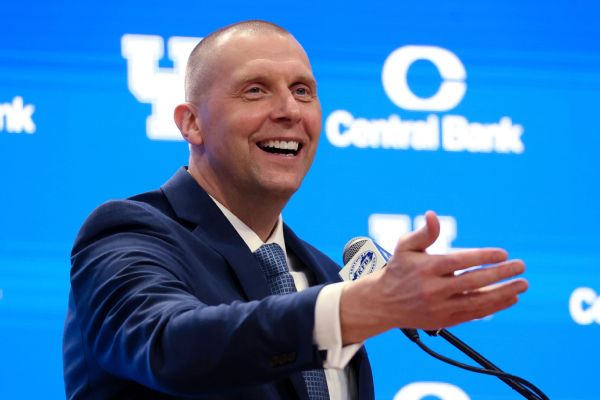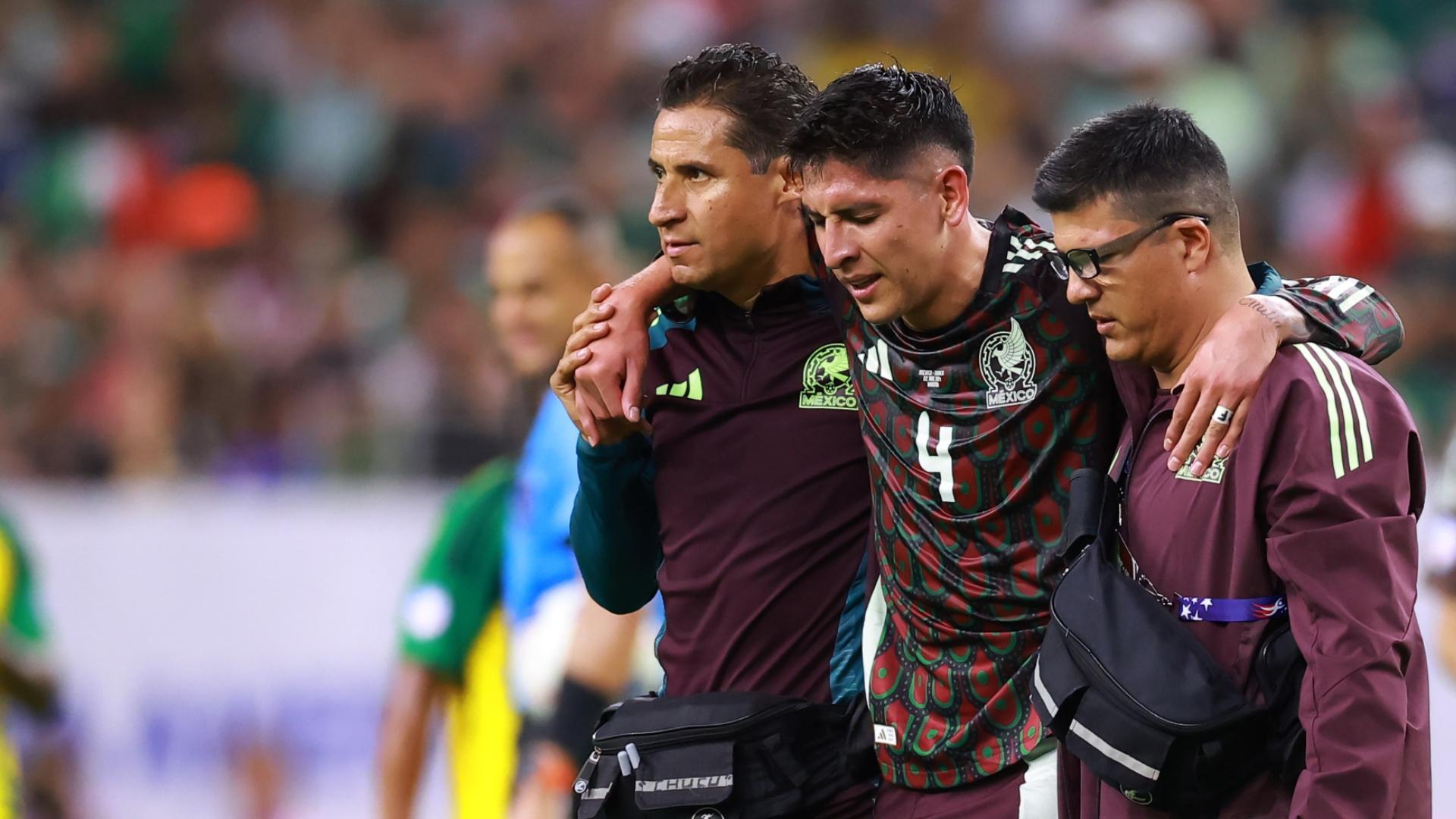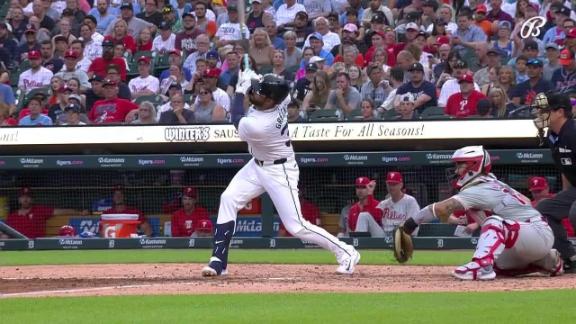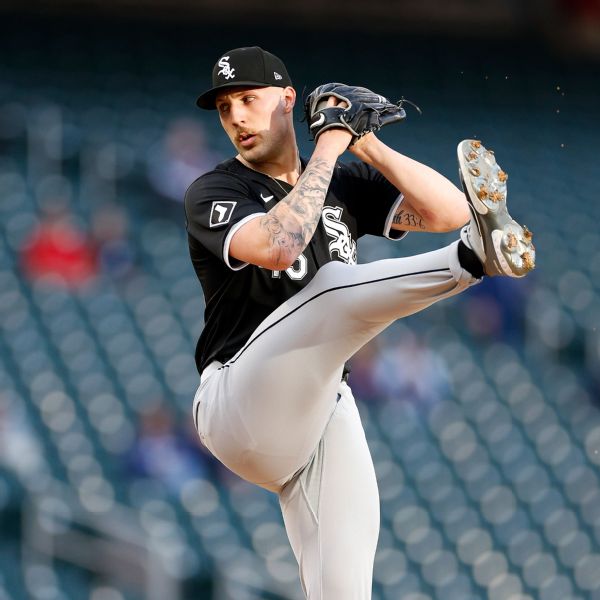![Stephen Curry #30 of the Golden State Warriors and Jayson Tatum [1296x729]](https://a.espncdn.com/photo/2024/0619/r1347605_1296x729_16-9.jpg)
Want to face Gerrit Cole -- between innings Inside the controversial new tech that could change at-bats forever
The 2024 NBA offseason has kicked into high gear, and several of the league's biggest stars can begin negotiating contract extensions.
The changes in extension rules in the 2017 and 2023 collective bargaining agreements have incentivized players to take guaranteed money now and not wait until they become free agents.
Since the 2022-23 season, 39 players have signed veteran extensions -- including Nikola Jokic, LeBron James, Devin Booker, Damian Lillard, Karl-Anthony Towns, Giannis Antetokounmpo, Anthony Davis, Jrue Holiday and Jaylen Brown.
This offseason, more than 100 players -- including All-Stars Stephen Curry, Joel Embiid, Donovan Mitchell, Jayson Tatum, Jalen Brunson and Kevin Durant -- are eligible to extend.
But several extension-eligible stars are expected to test free agency, including DeMar DeRozan, Klay Thompson and Paul George. The three players become free agents if they don't reach agreements with their respective teams by June 30.
A recap of the extension rules:
A player who signed a three-year or four-year contract is allowed to extend on the second anniversary of the original contract. A player who signed a five-year contract is allowed to extend on the third anniversary of the original contract. The maximum years, including what is left on the original contract, is five. The maximum salary of the first year of the extended term is the greater of 140% of the player's salary in the last year of the contract (but not exceeding the maximum salary) or 140% of the estimated average player salary. A first-round pick on a rookie scale contract is allowed to extend after the third year. The player is allowed to extend for five new seasons.Here's what to expect from several top NBA stars who are eligible for extensions, and what their futures in the league could look like.
Follow NBA free agency's biggest deals
Eligible for supermax extension Jayson Tatum, F, Boston CelticsTatum and the newly crowned NBA-champion Celtics are allowed to negotiate a five-year extension worth up to $315 million, which would make it the largest contract in NBA history.
Tatum met the supermax criteria last year (All-NBA in 2022 and 2023) but had to wait until this July as he was short of the years-of-service threshold.
Because of the supermax rules, the contract cannot be fewer than five seasons. The Celtics would become the only team to have two players signed to supermax extensions (Tatum and Jaylen Brown).
Tatum had 13 25-point, 10-rebound, 5-assist games in 2023-24, the most in a season in his career and the most by a Celtics player in a season since Larry Bird in 1989-90 (15).
What to expect: Even with the punitive roster restrictions that penalize high-spending teams, it is still highly likely the five-time All-Star agrees to the $315 million extension. Because the extension does not begin in 2025, the Celtics could pivot next offseason (including trading either Tatum or Brown) if the cost becomes too prohibitive.
Free agency awaits without an extensionI've highlighted the following three players -- DeMar DeRozan, Paul George and Klay Thompson -- in an accompanying piece on the top 10 free agents worth pursuing. However, they're worth noting again because they are still eligible for extensions even if they are expected to hit the market.
DeMar DeRozan, F, Chicago BullsDeRozan has been the Bulls' most valuable player since he signed in 2021. He is eligible to sign a three-year, $129 million extension before June 30.
But can the Bulls improve their roster while also retaining the six-time All-Star?
DeRozan, who averaged 24.0 points in 2023-24, has at least 20 points per game in 11 straight seasons. He ranked second behind Curry for the most clutch-time points last season. The 34-year-old is also one of the NBA's more durable players; he has played 92% of regular-season games since the 2019-20 season.
The Bulls have $134 million in salary next season and are pressed against the luxury tax if DeRozan signs a contract that starts at $30 million or more.
What to expect: It is hard to see Chicago or any team committing three seasons to DeRozan unless the last year is a team option or partially guaranteed. A two-year, $80 million extension puts Chicago in the luxury tax if Zach LaVine is not traded.
Paul George, F/G, LA ClippersGeorge is eligible to sign an extension until June 30, and without a new agreement, the nine-time All-Star would be the best available free agent outside of LeBron James.
George played his most games (74) since 2018-19 and shot a career-high 41% on 3-pointers. He and teammate Kawhi Leonard were the only players in the league to average 20 points and 1.5 steals and shoot 40% on 3-pointers this season.
Leonard signed a three-year, $150 million extension in January, and there are questions about whether the Clippers are willing to give George a fourth season and significantly more money.
The Clippers could extend George for four years, $221 million but have not shown the willingness to do so. They are not allowed to negotiate a no-trade clause in an extension but can do so if he were signed as a free agent.
The Clippers also do not have a financial advantage in free agency in terms of years offered and salary. A team such as the 76ers can offer four years, $212 million.
What to expect: There is no extension reached by June 30, and George becomes a free agent.
Klay Thompson, G, Golden State WarriorsThe Warriors have been outspoken about reigning in payroll this offseason, and that decision plays a role in Thompson's next contract.
In the scenario in which Chris Paul and Kevon Looney are waived, the budget for Thompson is $23 million. A contract starting at $30 million puts the Warriors in the luxury tax for a fifth straight season. But it would keep the team under the second apron, allowing it to use the $5.2 million tax midlevel exception and have flexibility in trades.
Thompson, a five-time All-Star and four-time NBA champion, could also enter free agency and sign with a team with salary cap space.
Notable playoff teams with room include the Orlando Magic, Oklahoma City Thunder and Philadelphia 76ers. If Thompson were to leave, Golden State would have options on inexpensive contracts in Brandin Podziemski and Moses Moody to replace him.
Both sides could work out a sign-and-trade. However, high-spending playoff teams such as the Lakers and Clippers are not allowed to acquire Thompson via a sign-and-trade because of the hard cap restriction.
What to expect: There is no agreement reached by June 30, and Thompson enters free agency.
Eligible for extension in July Derrick White, G, Boston CelticsThe cost to keep the championship roster in Boston is set to get expensive. White -- who has two straight All-Defensive second-team honors -- is eligible to sign a four-year, $126.1 million extension, the maximum allowed.
Along with Tatum's potential super max extension, a new deal for White could add $72 million in salary for the 2025-26 season. The cost to keep both players however is worth it.
White led all players in field goal percentage allowed as the contesting defender (a minimum of 800 shots) and ranked first in total blocks among guards this past season. He has missed only six regular-season games since the Celtics acquired him in February 2022.
What to expect: White and Boston agree to a four-year, $125.9 million extension. White could certainly bet on himself and wait until the 2025 offseason when he is a free agent. He would then be allowed to sign a $200 million contract with a team that has cap space, or seek a $270 million max deal in Boston.
However, there is no guarantee that a deal will be on the table with the Celtics, considering Brown and Tatum would be set to earn a combined $110 million in 2025.
Donovan Mitchell, G, Cleveland CavaliersMitchell's extension talks will dictate the offseason across the league. Mitchell has two years left on his contract ($34.9 million and $37.1 million), and the five-time All-Star is eligible to sign a four-year, $208.5 million extension starting July 6. The 2025-26 player option would be replaced with a starting salary of $46.5 million.
Mitchell could also sign a three-year, $151 million extension with a player option in the last season. In 2027-28, Mitchell will have accrued 10 years of service, making him eligible to sign a five-year, $381 million contract.
A selling point to Mitchell is that unlike teams that need to gut their rosters to trade for him, Cleveland can use its own players in a trade -- such as Darius Garland and Jarrett Allen -- to strengthen its lineup. Both players are former All-Stars, under contract for at least the next two seasons and have value if Cleveland makes them available.
What to expect: Mitchell and Cleveland agree to a four-year, $208.5 million extension. The new contract includes a player option in the last year.
Jamal Murray, G, Denver NuggetsMurray will have a decision to make with regard to his next contract.
He is entering the last year of his contract and eligible to sign a four-year, $208.5 million extension. The $46.5 million contract would begin in 2025-26 and have Murray earning $57.7 million in the last year.
Murray could also bet on himself, play out the season and then sign a five-year contract next offseason.
The extra year could earn him an additional $61 million. He could also sign for a supermax contract if he is named All-NBA next season, an achievement he has never met. Bypassing guaranteed money comes at a significant risk. Since tearing his left ACL in April 2021, Murray has missed 150 regular-season games.
What to expect: Considering Nikola Jokic has four years remaining on his contract and the Nuggets' window to compete for a championship remains open, both sides should commit long term. Although more money can be earned by waiting, there is too much financial risk for Murray considering his injury history.
Stephen Curry, G, Golden State WarriorsCurry signed a four-year, $215 million extension in 2021 and now has two years remaining ($55.8 and $59.6 million). Because of the over-38 rule, Golden State is allowed to add only one more season to Curry's deal. A one-year, $62.6 million extension would keep Curry in a Warriors uniform through 2026-27.
Curry led the league in clutch points and made 357 3-pointers this season, third most in NBA history.
What to expect: What is the rush? While an extra $63 million is an added bonus, wouldn't the four-time NBA Finals champion want to see the team's future plans before he commits beyond his two remaining two years? He is eligible to sign a two-year, $130 million extension next offseason.
Bam Adebayo, C, Miami HeatAdebayo will have options for his new contract.
He has two years left on his current deal and though he can extend for three years, $166 million, Adebayo will weigh whether a short-term contract makes the most sense financially.
By signing a two-year, $105.5 million deal with a player option in 2027-28, Adebayo would then be eligible for a five-year, $381 million contract. The significant increase in salary is a result of Adebayo reaching 10 years of service in the 2027-28 season. He will be 30 years old then.
He was named to the All-Defensive first team in 2023-24 after four straight seasons on the second team. Adebayo is one of seven players to defend at least 175 shots in half-court matchups against guards, forwards and centers.
Adebayo also held opponents to a 48% effective field goal percentage as the contesting defender, which ranked in the top 10 among players to contest at least 800 shots, according to Second Spectrum. The Heat ranked second in defensive efficiency this season when Adebayo was on the court.
What to expect: There is certainly a risk signing a two-year extension. Adebayo would forfeit $60 million in guarantees with the hope of a bigger payday in 2027. Adebayo has been the most consistent Heat player, as well as their healthiest. He has played at least 70 games in back-to-back seasons and has missed 18 games because of injury since 2022-23.
Jimmy Butler, F, Miami HeatHeat president Pat Riley turned some heads when asked at the end of the 2023-24 season about the impending decision to extend Jimmy Butler.
"That's a big decision on our part to commit those kinds of resources unless you have somebody who's going to be there and available every single night," Riley said in April. "That's the truth."
Butler is owed $48.8 million next season and holds a $52.4 million player option for the 2025-26 season. Starting July 7, he can sign a one-year, $58.6 million extension (keeping his current 2025-26 salary intact) or a two-year, $112.9 million extension (voiding the player option).
No one can doubt what Butler has meant to the Heat. Before his arrival in 2019, Miami had missed the playoffs in two of three seasons and had not reached the Finals since 2014. With Butler, Miami has advanced to three Eastern Conference finals and two NBA Finals in the past five seasons. Butler is one of nine players to have higher career averages in points, rebounds, assists, steals and blocks in the playoffs compared to the regular season.
But the six-time All-Star turns 35 in September and has failed to play more than 65 games in each of the past four seasons.As Riley said, committing an additional $59 million to what is already owed is difficult when Butler has not been available.
The Heat will need to decide whether rewarding Butler with a new contract is in their best interest long term and then analyze the fallout if he is not extended.
What to expect: Butler is extended for two years, $80 million. The $52.4 million player option in 2025-26 is lowered to $40 million, and the second year is also $40 million. In total, Butler will earn $28 million in new money.
Brandon Ingram, F, New Orleans PelicansPelicans president of basketball operations David Griffin was very clear that change is needed.
"Whereas in the past we've always erred on the side of continuity, and our takeaway has been, 'Let's see this group healthy,' I think we've seen it enough, " Griffin said after the season. "I want to be really, really clear: This is not going to be a summer of complacency. It's time to get better."
Now entering the offseason, the question is whether Ingram is part of the Pelicans' future.
A four-year, $208.5 million extension for Ingram should be an easy negotiation. Ingram -- who has one All-Star appearance -- is only 26 years old and has averaged at least 20 points, 4 rebounds and 4 assists in each of the past five seasons. He shot a career-best 53% on 2-pointers this season and ranked fifth in midrange field goals per game.
But the $50 million average salary on the extension comes with a significant risk. Ingram has missed 154 games since the 2016-17 season and played just 55, 45 and 64 games in the past three seasons.
The Pelicans have to ask whether paying a combined $115 million to Ingram, Zion Williamson and CJ McCollum in 2025-26 is smart business. New Orleans would be top heavy in salary, especially if Trey Murphy III is also extended in the offseason.
The bigger risk, however, is the distraction of Ingram coming back on an expiring contract if extension talks stall. The Pelicans are in a position to either pay Ingram or look for trade suitors, which could have a domino effect on the roster considering there is a void at center.
What to expect: Ingram is traded and then signs a four-year, $208.5 million with his new team six months after the trade is completed.
Jalen Brunson, G, New York KnicksBrunson is in a unique position. The first-time All-Star is eligible to sign a four-year, $156.5 million extension starting July 12. The $34.9 million first-year salary replaces his $24.9 million player option in 2025-26.
Brunson averaged a career-high 28.6 points and had five games of 45 or more points. He had the best plus-minus of any player during the regular season after Jan. 1.
However, if Brunson waited until next offseason and declined the player option, he would be eligible to sign a five-year, $270 million contract in New York.
What to expect: From a financial perspective, Brunson is better waiting until the 2025 offseason when he can sign for an additional $115 million. If Brunson did sign an extension in July, the team's savings (at least $12 million per year) could have an immediate impact on how it continues to build out its roster.
One option for Brunson is signing the four-year extension with a player option in the last season. By opting out in 2028, Brunson would have 10 years of service and be eligible to sign a contract starting at $72.3 million.
Joel Embiid, C, Philadelphia 76ersEmbiid has three years left on his contract and is eligible to sign an extension starting July 18.
The three-year, $193.5 million extension starts in 2026-27 and represents $134.5 million in new money. The $59 million player option in the original contract is now replaced with a new $59.7 million salary.
Signing Embiid to a new contract should be a foregone conclusion.
Embiid is in the prime of his career (the seven-time All-Star turned 30 in March), won an MVP in 2022-23 and has averaged double-figure points and rebounds in seven straight seasons. Embiid joined Wilt Chamberlain (1963-64) as the only players to average 35 points, 10 rebounds and 5 assists in a single season.
Paying to keep Embiid through the 2028-29 season however will not be an easy decision for the Sixers. Embiid is an MVP candidate when he is healthy, but his availability has been sporadic. Embiid underwent surgery on his left knee in February, the fifth surgery of his NBA career. He has missed 336 games since the 2014-15 season, and there should be concern paying him $59.7 million, $64.5 million and $69.3 million in three seasons on a new contract, especially when there are already three years left (the last year is a player option) on his current deal.
What to expect: A three-year, $193.5 million deal but with conditional protection in the last year. The $69.3 million salary in 2028-29 is guaranteed if Embiid plays in 65 games or more in one of the prior four seasons (2024-25 to 2027-28).
Kevin Durant, F, Phoenix SunsDurant, 35, has two years left on his contract ($51.2 million and $54.7 million) and is eligible to sign a one-year extension, which would pay him $59.7 million in 2026-27, when the two-time NBA champion turns 38.
Because of the over-38 rule, one year is the maximum Phoenix can offer. Durant played 75 games this season, his most since 2018-19. Durant averaged 27.3 points per game, the sixth most in a player's 16th season or later in NBA history, per ESPN Stats & Information. He is one of two players (along with LeBron James) who averaged 25 points and shot 50% from the field and 40% on 3-pointers this season.
What to expect: Durant signs a one-year, $59.7 million extension. Because the extension is not more than 120% of his 2025-26 salary, there are no trade restrictions. He is eligible to sign starting July 12.
Lauri Markkanen, F, Utah JazzThe Jazz have two options when it comes to a new contract for Markkanen.
The unlikely path would be for Markkanen to sign a four-year, $113 million extension starting in July, with a team-friendly $25.2 million first-year salary. That's less than what the forward could sign for as a free agent in 2025. The maximum starting salary next season is $44.4 million. Utah could renegotiate Markkanen's contract with cap space and then use the balance in free agency or trades.
However, Markkanen is not eligible to renegotiate his deal until Aug. 6. The Jazz are allowed to increase his $18 million salary up to $42.3 million and then extend his contract for an additional $202 million over four seasons. They are also permitted to decrease the renegotiated salary up to 40% and then extend off that number. Markkanen continues to play at an All-Star level (he has one career appearance) and for a second straight season flirted with 50/40/90 shooting percentages.
What to expect: Markkanen's $18 million salary is increased to $30 million, allowing Utah to still have over $20 million available to use in free agency. He is then signed to a four-year, $188 million extension.
De'Aaron Fox, G, Sacramento KingsFox has two years left on his contract ($34.8 million and $37.1 million), and Sacramento has the option to add three more seasons and up to $166 million in new money. The $51.2 million first-year salary of the extension would start in 2026-27. If Fox is named All-NBA this season, he'd be eligible for a four-year, $267.5 million extension.
If Fox does not sign an extension by Oct. 21, he would be eligible to sign a four-year, $229 million extension next offseason or a five-year, $346 supermax extension if he is named All-NBA in 2024-25. Fox finished the season averaging a career-high 26.6 points but earned only nine All-NBA votes.
What to expect: Fox is in a similar position to that of Denver's Jamal Murray last year. By waiting again (he could have signed a two-year, $105 million extension last offseason), Fox could earn an additional $65 million. However, unlike Murray, Fox has been durable the past two seasons. For the first time in his career, Fox played 70 or more games in consecutive seasons.
Because Fox will have 10 years of service in 2027-28, he could sign a two-year, $106 million extension but with a player option in the last year. He would then be allowed to sign a five-year, $381 million contract in Sacramento.
Eligible for extension in October Mikal Bridges, F, Brooklyn NetsBridges is different from other extension-eligible candidates because he is not allowed to sign a new deal until Oct. 1. The deadline to extend is Oct. 21.
The forward has two years left on his contract (at salaries of $23.3 million and $24.9 million), and his current deal is considered one of the best values in the NBA. The Nets could also renegotiate Bridges' contract beginning Oct. 1 if they create enough cap space.
The Nets are rebuilding, but Bridges vowed he will not ask out. "My intention is definitely to stay here," Bridges told the New York Post. "I got nowhere else to be."
Not asking out and signing an extension, however, are two different things.
What to expect: We will not fault Bridges for taking $113 million in guaranteed money. The extension is $23 million more than the contract he signed in 2021 and one fewer season. Why Bridges should wait comes down to two factors: What is the Nets' long-term plan to build around him, and would they renegotiate his contract next offseason when they project to have $80 million in cap space?
Bridges could also wait another year and then extend for four years and $156 million with the Nets. The question comes down to what happens if Bridges does not sign an extension next offseason and plays out the season on an expiring contract.


